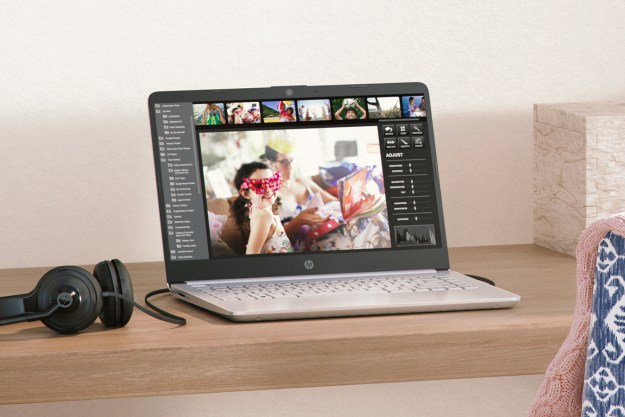Interested in finding just the right monitor for your desktop setup? If you’re shopping for an all-around display, we highly recommend the Dell P2720DC monitor. It looks fantastic, comes at an affordable price, and has an updated USB-C connection for your latest accessories. Our reviewers, who’ve tested and reviewed more than 100 monitors over the years, find little fault in it. However, if you have something more specific in mind, like a great 4K display or a monitor suited for gaming, we’ve got you covered below.




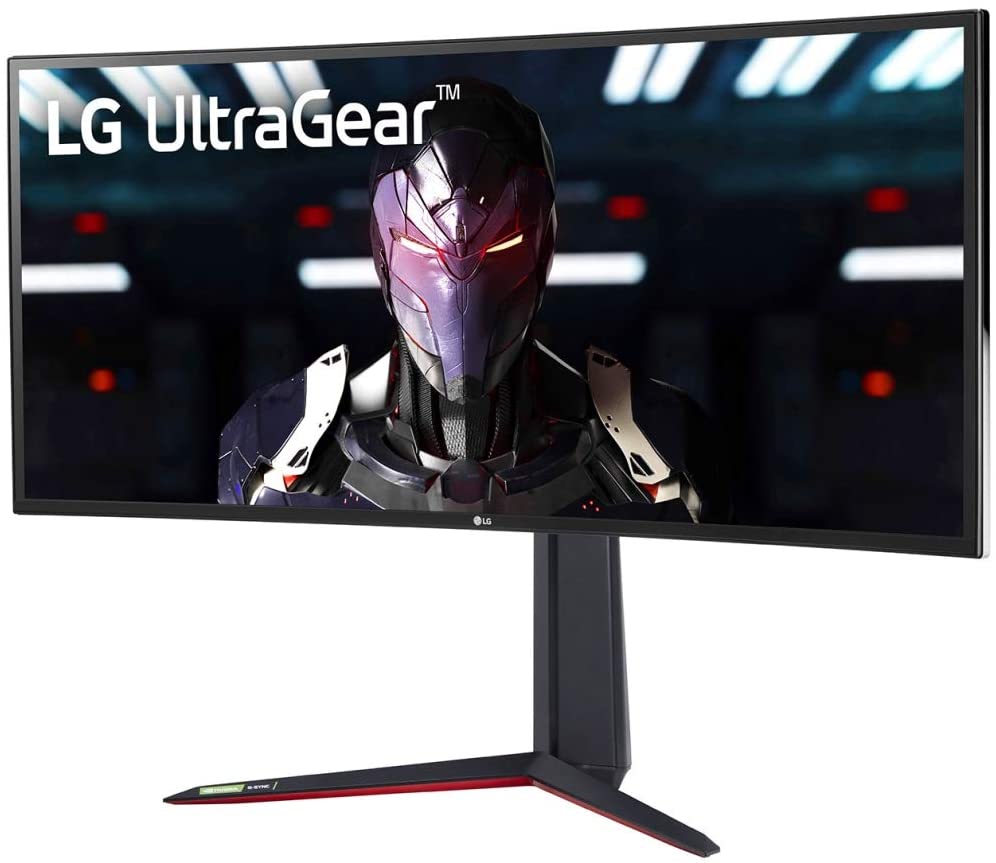

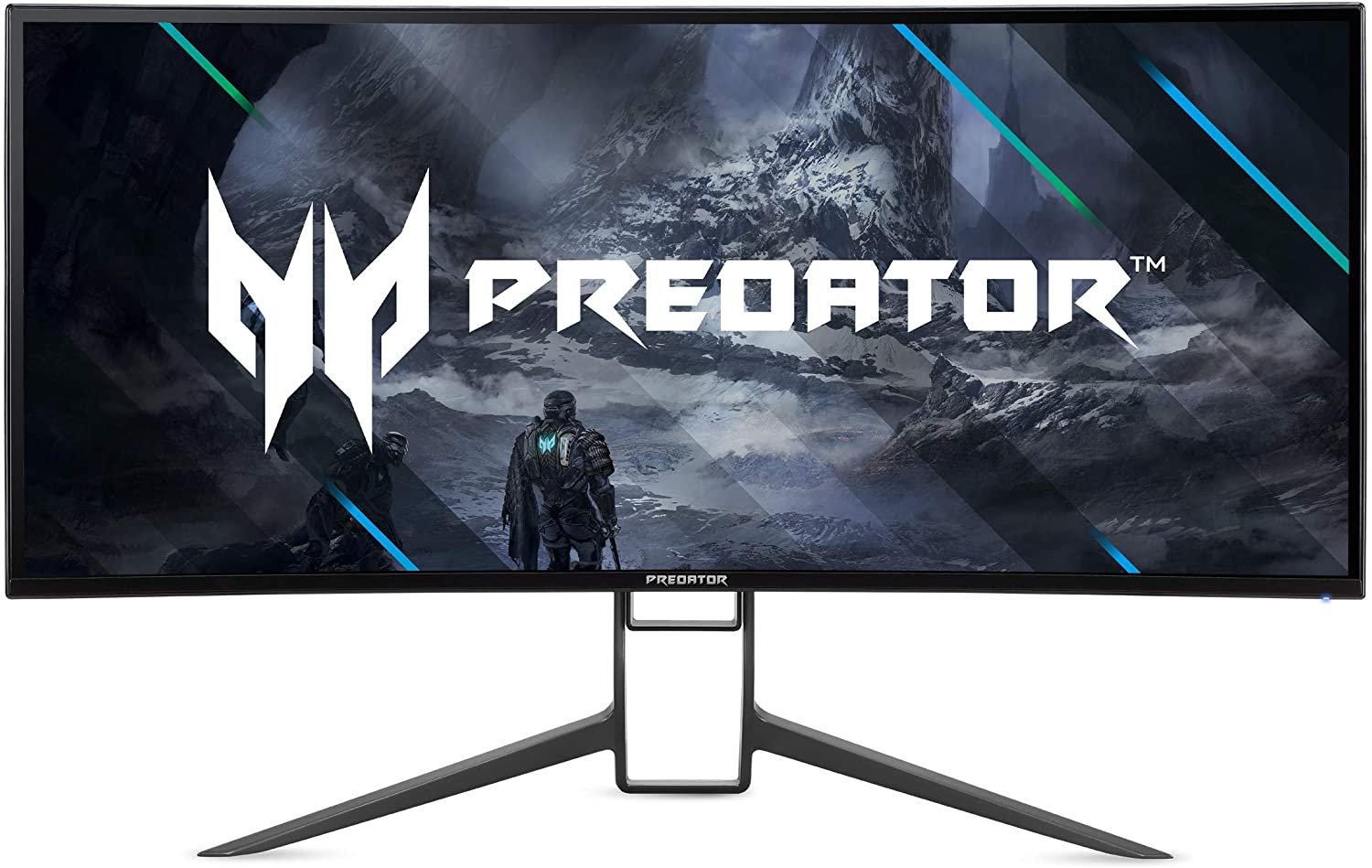


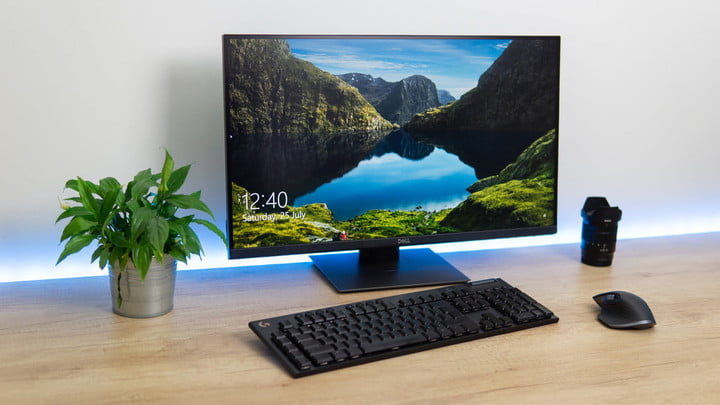
Dell P2720DC
- Superbly well balanced feature set
- Good image quality
- Power delivery supported through USB-C
- Attractive design
- No built-in speakers
Why you should buy this: It's a gorgeous screen with thin bezels and an attractive price.
Who it’s for: Just about anyone. It is perfect in a home or work office.
Why we picked the Dell P2720DC:
There's no perfect monitor for everyone, but this Dell monitor offers the best balance of resolution, design, features, and price. First, it measures 27 inches diagonally, which is the ideal size for a standard office desk. It's also 1440p (QHD), which is the perfect happy medium between affordable 1080p and super-sharp 4K.
It's not as sleek as Dell's UltraThin monitors, but the P-series look fairly modern as well. The P2720DC isn't necessarily for enthusiast photo editors, as the color calibration isn't quite up to snuff. However, it'll work great for hobbyists and most other kinds of computing tasks, sporting solid image quality and convenient adjustability.
Our favorite feature, though, is the USB-C connection. If you're planning to connect to a laptop with USB-C, this monitor can both power your laptop and display its video. It's plug-and-play at its finest.
There are fancier, more feature-rich monitors out there (see below), but the Dell P2720DC monitor is the option we recommend to most people.


Asus ROG Swift PG259QNR
- Unrivaled motion clarity
- Ultra-low input lag
- Buttery smooth gameplay
- Superbly stable stand
- Includes desk clamp
- Only 1080p
- Limited mainstream appeal
Why you should buy this: If you want fantastic PC gaming at an affordable price.
Who it’s for: Gamers looking for some of the smoothest gameplay possible to match their powerful PC.
What we thought of the Asus ROG Swift PG259QNR:
Serious gamers know to keep an eye on the refresh rate of their monitor if they want buttery-smooth gaming action — though you'll need a powerful GPU too. Consumer gaming options don’t get much better than this ROG model, sporting up to a 360Hz refresh rate with a 1ms response time. It also supports G-Sync, Nvidia’s Reflex Latency analyzer, and HDR.
We highly suggest looking at the different versions of this monitor to expand your choices, too. If you want the highest refresh rate possible you’ll have to compromise a bit with this 1080p resolution and 24-inch screen size, but that's perfect for esports. But if you’re absolutely fine with the still amazingly-high 240Hz refresh rate, you can bump up to a 27-inch screen with a UHD resolution. There are plenty of options with this model, depending on what you would like to prioritize.
Whichever model you end up with, you’ll get DisplayPort 1.2, HDMI 2.0, and USB 3.0 connections to work with, along with the Asus modes for reducing blue light and flickering, and the overall design is excellent, with trim bezels, a great menu system, and handy monitor adjustments to get the right placement for you.

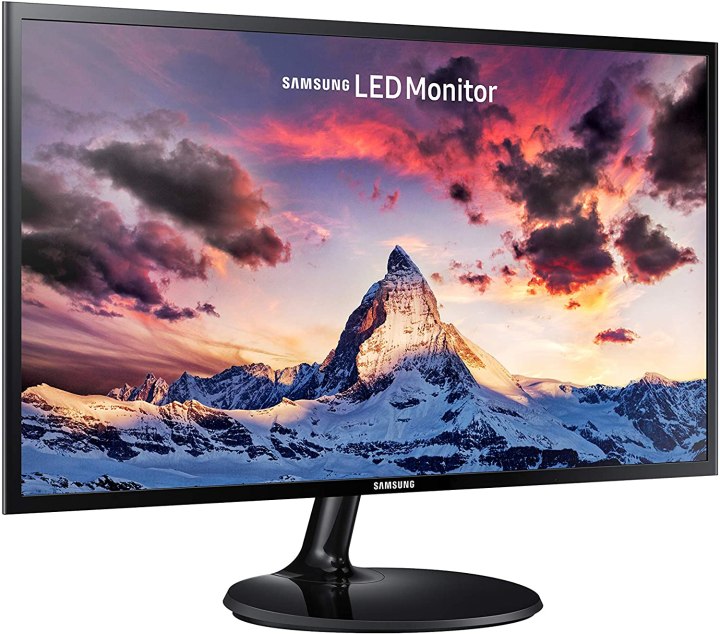
Samsung 27-inch SF354
- A quality budget pick
- Overall good for casual uses
- Samsung PLS panel technology
- Not for gaming or creatives
Why you should buy this: It's a great, spacious monitor if you need a large screen but at a low price.
Who it’s for: Work-from-homers, families, and those looking for an effective budget monitor.
Why we picked the Samsung SF354:
Most people looking for a new monitor don't need anything fancy. No matter how cheap you're going, though, 27 inches and 1080p are a couple of good standards to keep. The Samsung SF354 hits both of those at a fantastic price of $170. Beyond that, it has a slim design with relatively thin bezels around the frame.
The SF354 also uses PLS panel technology, which is Samsung's version of IPS. In other words, you'll get decent viewing angles and realistic-looking colors. It's not for gaming or intense content creation, but this basic Samsung monitor is everything the average person needs in a work monitor.
If you're looking for something even cheaper than the Samsung 27-inch SF354, check out our list of the best monitors under $100.

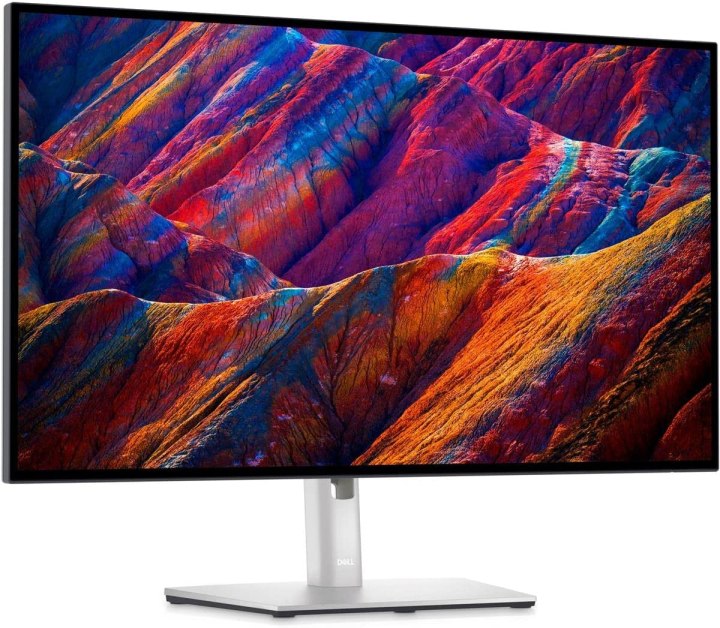
Dell UltraSharp U2720QE
- Excellent monitor for entertainment
- 4K resolution
- HDR support
- Refresh rate is capped at 60hz
Why you should buy this: It's a beautiful display in a lean frame, with an impressively sharp screen.
Who it’s for: Media viewers who want that 4K HDR pop and detail.
Why we picked the Dell UltraSharp U2720QE:
One of the best 4K monitors out there, the Dell UltraSharp U2720QE might not have the largest screen, but at 27 inches and 4K resolution, it packs an enormous range of pixels inside a compact frame, making for an exceptionally crisp picture.
When combined with great HDR support and a huge 2,000:1 contrast ratio, this monitor looks stunning no matter what you're doing on it. It's also one of Dell's monitors that comes with a USB-C hub to support the latest connections for your devices, so you shouldn't have to worry about accessory compatibility.
Keep in mind that the U2720QE is not designed with gaming in mind. It lacks a high refresh rate, but the 60Hz is enough for gamers playing slower games who want the added detail of 4K. You won't need the world's most powerful graphics card to run it maxed out either.
The strong features of the Dell UltraSharp U2720QE are available at a price that's not out of this world, so you needn't break the bank just to get yourself a great 4K screen.


LG Ultragear 34GN85B-B
- Excellent ultrawide
- Gaming friendly
- G-Sync support
- An expensive choice
Why you should buy this: It's expensive, but this ultrawide is stunning to look at and stands head and shoulders above most other big-screen displays.
Who it’s for: Those who want a huge multi-monitor experience without the bezels.
Why we picked the LG UltraGear 34GN85B-B:
Ultrawides are an alternative to traditional monitors. If you've got the desk space, they can give you more screen real estate than you've ever had before, with relatively few downsides and a whole lot of performance. A curved monitor is an especially good match for an ultrawide because it can help save a little bit of space while improving immersion. It's no wonder this kind of ultrawide is a favorite pick for racing games and other genres where immersion is important (as long as they can support the screen size) — but it can also excel at managing complex editing programs and multi-window projects.
LG's UltraGear ultrawide is a particularly good pick no matter why you're interested. Its 34-inch display is a good middle ground that can fit on most desks, and the G-Sync compatibility also makes the monitor friendly for gaming. The Nano IPS panel is excellent for color and provides a 1 ms response time, while the refresh rate can be overclocked all the way to 160Hz. That 3440 x 1440 QHD resolution is also helpful for juggling tasks or detailed apps in a professional setting.

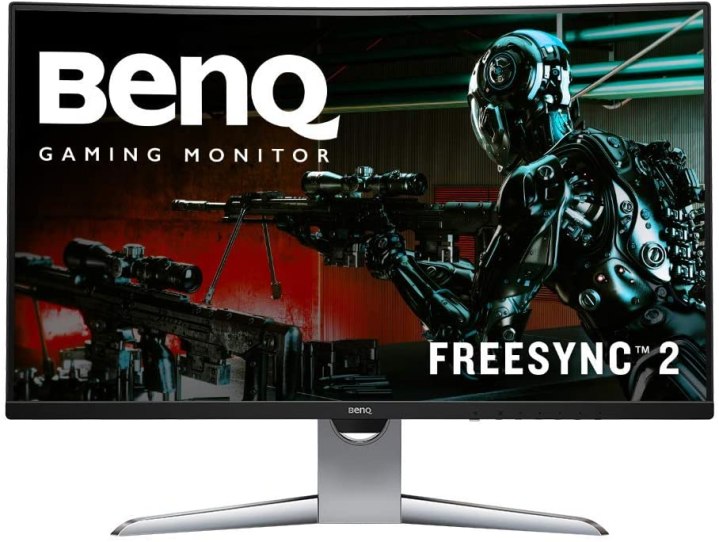
BenQ Mobiuz EX3410R
- Bright, vibrant colors
- Solid DisplayHDR 400 performance
- Excellent integrated speakers
- Automatic source/preset mapping
- Included remote
- Decent overdrive settings
- Menu is a little clunky
- Not well-suited for color work
Why you should buy this: An affordable extra-large monitor for the masses
Who it’s for: Gamers and anyone who wants masses of screen space for their next project.
Why we picked the BenQ Mobiuz EX3410R:
Ultrawides can feel too big and too expensive for the average desktop setup, but this Mobiuz monitor is here to prove differently. At 34 inches, the monitor adds extra screen space but is still reasonably sized for most desk spaces, and the price is more affordable than most similar ultrawides you can find on the market.
It’s also no slouch when it comes to specs, with a 3440 x 1440 resolution and a 144Hz refresh rate. Add in the FreeSync Premium Pro and gamers will find little to complain about. The built-in speakers (including a 5W subwoofer) are also impressive if you want to save more money by skipping an external speaker system.
The monitor also includes DisplayHDR 400 support and a remote, both of which can make it an excellent all-purpose entertainment screen. Just note that it’s a curved monitor, so it may not be the best choice for larger groups.


Acer Predator Gaming X34 (2021)
- Curved ultrawide design
- G-Sync support
- UHD resolution
- 100Hz refresh rate
- No FreeSync support
Why you should buy this: It's one of the best curved monitors available for serious gaming or task management.
Who it’s for: Workers and gamers that want a curved screen for added immersion.
Why we picked the Acer Predator X34:
Curved monitors are an alternative to traditional flat panels. They can offer more immersion and easier access to details at the edges of the screen but are primarily designed for a single user and struggle with viewing angles. It's no surprise, then, that curved monitors are popular among gamers, especially when they love games that support the aspect ratios for these screens.
The Acer Predator X34 is an excellent example, packed with gamer-friendly features on a 34-inch curved screen that can also be useful in the office or studio. The 3440 x 1440 resolution is made all the better with the 100Hz refresh rate, which can be overclocked to 120Hz, along with G-Sync support to help prevent tearing. Ports include DisplayPort 1.2, HDMI 1.4, and USB-A 3.0 connections.


Alienware 25 Gaming Monitor AW2521H
- 360Hz refresh rate
- G-Sync support
- Good color accuracy
- Latency reduction
- HD only, no 4K option
Why you should buy this: It's one of the best monitors available for maximum framerate.
Who it’s for: Gamers who play fast-action genres and want the best.
Why we picked the Alienware 25 Gaming Monitor AW2521H:
Refresh rate is a vital spec for fast-action games that need to refresh frames as often as possible to give gamers the smooth action and extra detail that they need. If that describes your favorite genres, this 24-inch monitor may be for you: It pushes refresh rate to the highest levels at 360Hz and uses the Nvidia Reflex Latency Analyzer so you can be sure absolutely nothing is getting in the way of your reaction speeds.
The monitor also has a 1ms response time and covers 99% of the sRGB color gamut. G-Sync support is included as well. There’s also a generous helping of port options, including two HDMI, DisplayPort 1.4, and multiple USB 3.2 connections for both upstream and downstream. The only real downside to this monitor is that it’s only 1080p, a limitation set by that sky-high refresh rate, but the action is so smooth you may not even notice.


Samsung Odyssey Neo G9 G95NA
- One of the biggest and best ultrawides you can buy
- 240Hz refresh rate
- UHD resolution
- G-Sync and FreeSync support
- You'll need to save up for this one
- Won't fit in all computer setups
Why you should buy this: It's one of the best monitors ever made — and it's enormous.
Who it’s for: Those who want one of the biggest and brightest ultrawides possible.
Why we picked the Samsung Odyssey Neo G9 G95NA:
If there’s no such thing as “too much” for your monitor, this new entry in the Odyssey line beckons: The enormous 49-inch ultrawide is like having two or three monitors to work with without annoying borders getting in the way, while the curve is excellent for immersion. Screens like these are favorites among gamers with serious racing game setups, but they can be useful for anyone who wants as much immersion and screen real estate as they can possible (and already knows they have the room for it).
But that’s just the beginning of how the Odyssey Neo G9 G95NA impresses. It comes with a vibrant mini-LED display, a UHD resolution so no details go to waste, and a refresh rate of 240Hz to ensure even the fastest action is smooth and clear. It’s also one of the few (but growing) monitors to offer both FreeSync and G-Sync, so it doesn’t matter if you use AMD or Nvidia. HDR2000 is also supported for additional optimization. Oh, and don’t forget about the picture-by-picture mode, which is an important tool for managing a screen this wide.
The biggest downside is that such a large monitor with so many high-end specs is more expensive on its own than many computer stations are altogether. But if you have the budget for it, there’s not much better for a gaming setup.

Frequently Asked Questions
No one monitor brand makes all the best monitors in the world — that’s why this list is populated by a number of different manufacturers. That said, there are some that you can rely on more than most to produce great screens. Dell is a longstanding favorite of ours with years of fantastic displays under its belt. It also tends to cater well to the professional crowd just as much as gamers, so you know there will be something you like in its lineup.
Other noteworthy brands worth considering include Acer, which tends to produce some of the world’s best gaming screens; Samsung, which offers some of the best ultrawide screens and large-size monitors we’ve ever seen; and LG, which has a good all-around catalog of displays.
This very much depends on the resolution you’re targeting and how much desk space you have. While bigger does tend to look better, giving you more screen space for work and larger images for games and movies, they can stretch entry-level resolutions like 1080p to the limits of their clarity. Big screens also require more room on your desk, so we’d caution buying a massive ultrawide like the Samsung Odyssey series if you’re working or playing on a small desk.
As a quick rule of thumb, 1080p looks great up to about 24 inches, while 1440p looks good up to and beyond 30 inches. We wouldn’t recommend a 4K screen any smaller than 27 inches as you aren’t going to see the real benefit of those extra pixels in what is a relatively small space by that resolution.
They can be. 4K offers the pinnacle of gaming detail and, in atmospheric games, can give you a whole new level of immersion, especially on larger displays that can fully display that mass of those pixels in all their glory. These high-res displays really excel in games where frame rates are not as important as visual clarity. That said, we feel that high refresh rate monitors can deliver a better experience (especially in fast-paced games like shooters), and unless you have the deep pockets to splash out on a powerful graphics card or two as well, you aren’t going to get those frame rates at 4K. A 27-inch, 1440p display is still the sweet spot.
Also, keep in mind monitor performance is now often linked to framerate management technologies like FreeSync and G-Sync, so watch for these technologies and compatible graphics cards when making gaming monitor decisions. FreeSync is for AMD graphics cards, while G-Sync only works with Nvidia’s GPUs.
The short answer is they’re both the same. The longer answer is that this is a failure of company marketing in properly conveying what its products are. Today most monitors that use LCD technology are backlit with LEDs, so typically if you’re buying a monitor it’s both an LCD and LED display. For more of an explanation on LCD and LED technologies, we have a whole guide dedicated to it.
That said, there are OLED displays to consider, although these panels haven’t made an impact on the desktop market yet. OLED screens combine color and light into a single panel, famed for their vibrant colors and contrast ratio. While that technology has been making waves in televisions for a few years now, they’re only just starting to make a tentative step into the world of desktop monitors, from Samsung's QD-OLED tech to LG's extra-bright G2 monitors.
If you suffer from eye strain, look for monitors that have built-in light filter software, especially filters that are specifically designed for easing eye problems. These filters are designed to block more blue light, which is the part of the spectrum that affects our eyes the most and is responsible for most eye strain problems. However, you can also download eye filter software apps for any type of monitor you get.
Refresh rate shows how many times per second the display can update an image with new visual information — the higher the refresh rate, the smoother transitions will look and the more information will be displayed. Refresh rates start at 60Hz but many monitors go higher, with refresh rates of 240Hz, 360Hz, and some even as high as 500Hz! This specification helps games and movies look better, and lowers input lag, making a high refresh rate popular for gaming machines and similar setups.
Ultrawide monitors use a 21:9 aspect ratio and have elongated displays to accommodate it. This not only allows users to play compatible games and movies in a larger aspect ratio, but the extra space also makes it easier to multitask or work with more complex software.
Many do, but not all. If you want internal speakers, always check to see if a monitor comes with them. Higher-wattage speakers will generally produce louder, clearer sound. Or you could pair a monitor with a set of external speakers.
**Get More Specific ** * Best Curved Monitors * Best Gaming Monitors * * Best Ultrawide Monitors
Editors' Recommendations
- This Lenovo gaming laptop with an RTX 3070 Ti is $730 off right now
- This Lenovo Legion gaming PC with an RTX 3080 is $750 off
- Laptop Deals Under $500: Save on HP, Lenovo, and Dell today
- HP just discounted a load of its best-selling laptops
- Flash deal drops the price of this Lenovo Chromebook to $105

